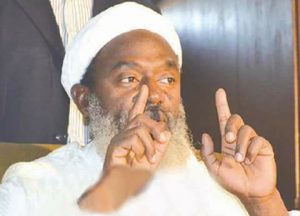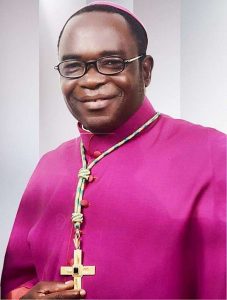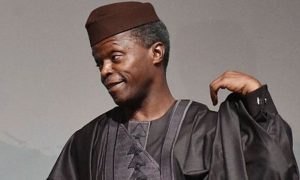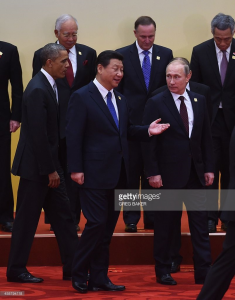The intelligentsia is any society’s barometer through their framing of what is happening and what such frames imply. The intelligentsia may not be a homogeneous entity but they are distinguished by epistemic authority – the unique outcome from trained mental capability.
Therefore, when Nigeria is experiencing what even President Muhammadu Buhari regards as a resource draining insecurity challenge as he told the South-East Post-Election Peace Conference/Summit last Thursday in Owerri, Imo State or in what many consider as the country being at war, the intelligentsia is the constituency to go to in terms of their sense of what the problem is or are, what is to be done and probably how they might be done.
This is what Intervention attempts below. There is absolutely nothing objective about the selection of participants here. It is a purely convenient exercise although all of them were speaking directly to the current situation in the country. Regrettably, there is no woman on this list, just yet.
The point here is not whether any of the members of the intelligentsia is objective or not. The point is the perspective each one has brought to the table towards a more settled Nigeria. What this platform seeks is not objectivity but opening up the inter-subjective space for different perspectives, standpoints or angles from which to produce peace. Here we go, taken an alphabetical order.
 Dr Usman Bugaje
Dr Usman Bugaje
The Katsina State born Pharmacist and University of Khartoum PhD holder in Intellectual History spoke on April 23rd, 2019 at a National Conversation on Quality Education at the Yar’Adua Centre in Abuja.
His emphasis at the occasion is on the quality of governance and how that has produced a crisis of quality in education. For him, it is governance that determines policy, funding and a third variable that was inaudible, declaring his inability to put a name to what exists today by way of governance in Nigeria. One reason for that is what he considers to be the stupidity displayed by the governing elite in their concept of loyalty as a criterion for selecting aides. He was sure that none of the mega companies ruling the world today such as Google, Facebook, Microsoft would be what they are if the owners adopted such sense of loyalty in their recruitment.
In other words, the demise of critical thinking he observes in Nigeria’s education now is a derivative of an approach to governance that thinks little of nurturing of the mind. To that, he traces Nigeria’s “big problem with our epistemology”. That is, the processes of what constitutes knowledge have been ignored, leading to too much of assertions and declarations that are not informed by “accuracy, precision and clarity”. This, he says, is not the same in other countries.
Even as short as his text is, his is an attack on an elite he considers to be underdeveloped, placing their leadership practices as the opposite of those of the brains behind the harbingers of the postmodern world such as Google, Facebook, Microsoft. That is, Dr. Bugaje is saying that the education that this elite can give is a joke as far as the world ahead is concerned.
Although a politician of the All Progressive Congress, (APC), his is nevertheless well aimed potshots at the current federal leadership, a section of the Northern elite as well as the Nigerian power elite generally. It is, indeed, an attack on the Nigerian power elite generally to the extent that, in spite of fractions and factions within that elite, none of those fractions has transcended the ethno-regional framework of nation and state building in favour of a big break with the colonial foundation of statehood.
Lesson: change lies in changing this elite in the North and in Nigeria. Since Bugaje is in partisan politics, his can be read as a clarion call on all of us to join politics somehow, at least engage politics radically and be the change we want to see.
 Dr Ahmad Abubakar Gumi
Dr Ahmad Abubakar Gumi
This vocal, Kaduna based cleric is no ordinary member of the Ulema, being a son of Sheikh Abubakar Gumi who once warned of the ‘Bottom Against the Top’ (see the book, Where I Stand) which is something like the violence across the North today and being educated in Western and Islamic terms.
He has spoken to the media a lot, most of it critical of the Buhari regime in the past four years. What is really new from where he stands is the recent headline attributing to him the words: “Nigeria is doomed if no justice for Atiku”, (Nigerian Pilot, April 27th, 2019, p.38).
Too many things are happening in the polity that it could be a case of reading too much to just a headline. Even then, this bears the stamp of a distinctive camp of reasoning in the North that the Buhari leadership has exhausted whatever potentials it ever has for Nigeria. Unlike many others, Dr. Gumi said it from Day One that a Buhari candidature in 2015 would be too divisive for Nigeria, the same thing he told Dr. Goodluck Jonathan. They did not listen to him. After his defeat, Jonathan took a statesman approach to it all and left the stage. Buhari mounted the stage and his Presidency has, by popular consent, been even more divisive than his candidature, that being what players such as Gumi are looking forward to “justice in Atiku’s case” as a way of putting an end to that.
 Prof Attahiru Jega
Prof Attahiru Jega
The statement of the immediate past Chairman of the Independent National Electoral Commission, (INEC) that is still making waves in several quarters is that which upbraided lecturers, especially professors, who participated in the February/March 2019 General Elections as ad hoc staff for conniving with politicians and compromising the exercise.
The other side of the revealing comment is how it aligns with what Dr. Bugaje had said at a different forum as reported above – the idea of a mediocre educational system. When Jega said that the lecturers and professors in question had served notice that academics were not taking “the obligations of scholarship and intellectual engagement with the seriousness it deserves”, it was bound to be taken note of in several quarters, within and outside the country. Prof Jega has been an academic all his life, becoming National President of the ‘troublesome’ Academic Staff Union of Universities, (ASUU), a Professor and a Vice-Chancellor. It is instructive that none of those at the receiving end of Jega’s verbal lashing has responded, a silence that can be interpreted as a plea of guilty as charged.
In itself, Jega’s standpoint is a standalone judgment on the election as well as on his constituency because he is not an ordinary commentator on matters of election as well as on the university system in this country any more. There can be no better classic insider than a former Chairman of INEC who presided over a landmark national election although the details of what the academics might have done in the 2019 elections were no longer exclusive to him by the time he spoke since he said they were already common knowledge circulating even within the four walls of campuses such as Bayero University, Kano. In relation to the university system, his is a further alert on the degree of the crisis there even as the system still habour lecturers and professors that have global competitiveness, academically and otherwise.
 Bishop Mathew Hassan Kukah
Bishop Mathew Hassan Kukah
Matthew Hassan Kukah, the Catholic Bishop of Sokoto Diocese who has been speaking at the National Conference and Annual General Meeting of the Nigerian Institute of Public Relations, (NIPR) in Kaduna is fingering the closure of the institutional, political and other spaces by those he called quacks. Expatiating on quackery, the vocal cleric and peace practitioner offers that as the reason why there will not be an academic expert who understands China following the president on a trip to China. Instead, such trip is dominated by governors. “This is the only country where the only experts are those manufactured by those in power… The country has become averse to expertise, to intellectual contribution.”
His rating is that Nigeria is practicing politics of a very poor quality, unable to craft a narrative of itself; unable to manage diversity and has become one of the most dangerous countries to live in the world, what with the kidnapping of the president’s own in-law in the president’s home state on May 2nd, 2019, indicating that “there are no more sacred spaces in the country”.
The outcome of all these is how “the incredible capacity of our people is in suspended animation” with millions of young people who are moving around and have turned to crime, constituting what he calls a massive scare on Nigeria’s face. Declaring as totally unacceptable that Nigeria would live with so much and yet so many of the people would be “objects of humiliation around the world”, Bishop Kukah says that makes the possibility of marketing Nigeria a frustrating act.
So, here again, there is an agreement with Dr. Bugaje regarding the underdeveloped nature of the elite in power, specifically and generally. While Dr. Bugaje mentions this elite’s backward notion of loyalty, for instance, Bishop Kukah emphasises the quackery of their exercise of power, manifesting in hostility to expertise or fear of modernity.
 Odia Ofeimun
Odia Ofeimun
This poet’s standpoint is the case for a biometric system of voting as the ultimate critique of what he traces to a colonially implanted electoral culture of ‘whether you vote for us or you do not vote for us, we shall win’. In a massive post-election essay on “the history of an awfully compromised leadership recruitment process”, the poet defends his turn to a technological fix in terms of how biometric voting would unmake the past. That is, biometric voting as a dismantler of the colonial implantation he links violent electoral contest to once it assumed the idea of privileging of one ethnic group in the North and the North over the rest of the country. His argument of this is that it is in that process that the national election management body, even when it is called independent and national, always acted as the handmaid by which incumbents and ethno-regional power agendas were realized. On this, he went to great statistical length to prove how the 2015 and 2019 elections were what he regards as the glorious run of a regional agenda in the performance of Professor Attahiru Jega and Professor Yakubu Mahmood whom he calls Jega’s protégé and successor as Chairmen of INEC. “Both of them have been poster icons of a regional security assertiveness, in the Independent National Electoral Commission which has turned, provably, into an industry for undermining a pan-Nigerian definition of free and fair elections”. As far as Ofeimun is concerned, “the means for in-built correction in the political system, through tribunals and up to the Supreme Court are threatened with redundancy”.
In publishing the full text of the essay, Intervention, for example re-titled it from “Political Analysis: 2019 Elections And The Remaking Of The Nigerian Project” to “21st Century Awoism, The 2019 Elections And The Remaking Of The Nigerian Project”. It was a recognition of the observable shift in Awoism regarding a technological fix to elections. Chief Awolowo’s objections to use of electronic voting machines the NPN Government was planning for the 1983 elections was such that Dr. Chuba Okadigbo who was Political Adviser to President Shagari described Chief Awolowo to be electrophobic in an interview with the then Sunday Concord. Chief Awolowo, said Dr. Okadigbo, was a paradoxical figure: someone with a great fascination for free education but who hated technology. There is thus everything 21st Century Awoism in the idea of biometric voting as a cure for Nigeria’s violent electoral culture. In the turn in Awoism, opponents of biometric voting would be the new electrophobes.
Equally interesting is situating Nigeria’s violent electoral orientation in colonial gerrymandering. Why the post colonial elite have not been able to rise and overcome that colonial implantation is the question begging for an answer. Rather than anything of that nature happening, the ethnic strategy has continued to reproduce itself as for ethno-regionalism to become the primary contradiction now. In other words, the Nigerian elite is more or less what Prof Segun Osoba calls them – a fake bourgeoisie because, unlike their European, American, Russian and now the Chinese bourgeoisie, they have been unable to confront the difficult task of nation and state building with any successes. As Kukah mentions in his own contribution above, the real tragedy is Nigeria that has not been able to craft a national narrative that is binding. Of course, it is not that there are none at all. It is actually that Nigeria has not crafted that narrative that fires popular imagination. Without that, Nigeria is going nowhere!
 Prof Yemi Osinbajo
Prof Yemi Osinbajo
What Prof Yemi Osinbajo has been reported to be saying in the past few days is the coming of a Government of National Unity, (GNU). Not totally a secret that the government has bought into it, Osinbajo has, however, made it official. He told incumbent and incoming governors undergoing an induction in Abuja earlier in the week that all the parties have agreed to it. It is not clear if the phrase ‘all political parties’ includes the People’s Democratic Party, (PDP) whose presidential candidate in the last elections is challenging the results of the election in the court. This is not impossible since governments have so many ways of getting to its targets.
The other question some observers are raising is whether a GNU means the same thing as an Inclusive Government. The answer seems obvious in the sense that unity of nationalities is what is understood as inclusivity in Nigeria as opposed to say political parties in South Africa or gender balance in some other countries or radical versus conservatives in yet some other countries.
All said and done, searching for a GNU, of course, suggests a desire to move away from a government of national disunity.



























